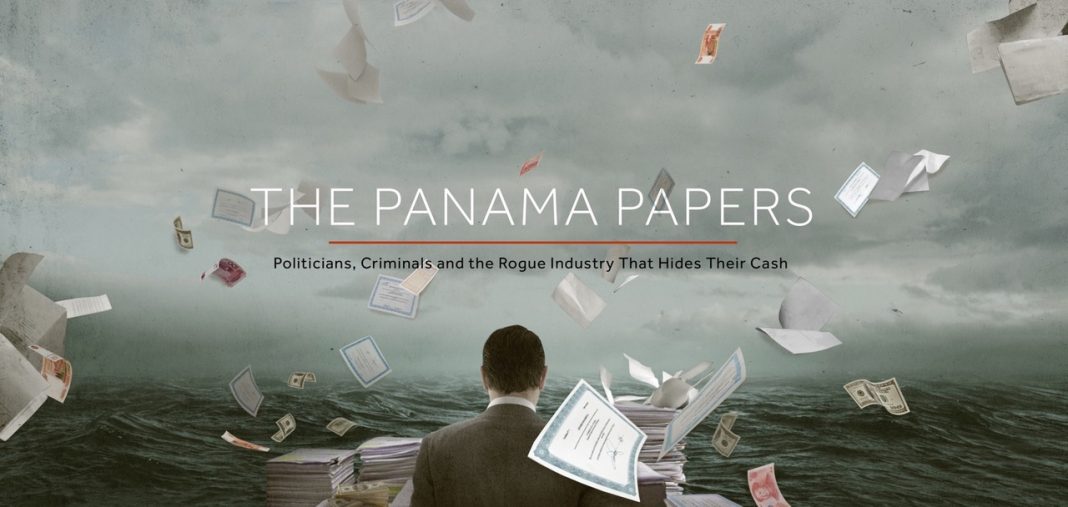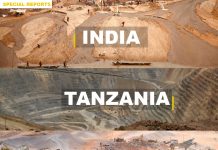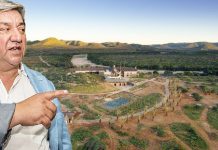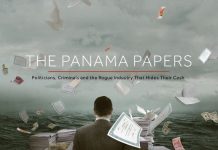By Shinovene Immanuel | 4 April 2016
A SHELL company linked to a bribery scandal in Brazil paid US$1 million to another firm wholly-owned by a Trinidadian politician as part of an international bid to win a N$3,5 billion (US$340 million) tender to expand the Walvis Bay Port in Namibia, according to leaked documents.
Santa Tereza Services, a firm incorporated in New Zealand but owned by another front company in London, outsourced a N$10 million (US$1 million) contract to Pendrey Associates Corporation in 2012.
This information comes from leaked internal data obtained by the German newspaper Süddeutsche Zeitung, through an anonymous source, from the Panama-based law firm Mossack Fonseca.
The International Consortium of Investigative Journalists shared the files with The Namibian, and organised the global collaboration covering the leak.
The more than 11 million documents, dating from 1977 to December 2015, show the inner workings of how Mossack Fonseca helps customers create offshore shelters.
The leak provides facts and figures – cash transfers, incorporation dates, links between companies and individuals – which illuminate a dark alternate universe where some people go to play by different rules, and of a firm which enables such behaviour.
They reveal the offshore holdings of individuals and companies from more than 200 countries and territories. They recount example after example of ethical and legal wrongdoing by clients, and provide evidence of a firm happy to act as a gatekeeper to the secrets of its clients, even those who turn out to be crooks, members of the mafia, drug dealers, corrupt politicians and tax evaders.
SANTA AND NAMIBIA
On 26 December 2012, Santa Tereza Services, which has a bank account at PBK Bank in Switzerland, tasked Pendrey Associates, an offshore firm based in Panama, with determining the price of the Namibian port contract and producing a technical report on key aspects such as the workforce and bidding processes on behalf of an unnamed international company.
According to leaked court documents from Brazil’s ‘Car Wash’ scandal, Santa Tereza Services paid US$1 million to “Pendrey to develop the technical studies that will support the pricing and technical proposal for the expansion of the Walvis Bay Port.”
Santa Tereza Services has a dirty past.
By early 2015, Santa Tereza Services emerged as a significant player in the Brazilian bribery scandal code named ‘Lava Jato’, or Car Wash. Brazilian media reports said Santa Tereza is owned by John Procopio de Almeida Prado, a subordinate of Albero Youssef, a convicted money launderer and a principal player at the centre of Brazil’s biggest-ever political corruption scandal.
Testimony in the overall inquiry showed that executives at Petrobras accepted large bribes from companies, and channeled some of that money to political figures and the ruling Workers Party.
Pendrey Associates Corporation was registered on 11 December 2012 in Panama, with Ken Emrith, a politician in Trinidad and Tobago as the sole signatory. Pendrey Associates was registered by offshore fixing firm Mossack Fonseca.
Emrith is a former politician with the United National Congress (UNC), which ruled Trinidad and Tobago between 1995 and 2001.
Even though he did not hold any position after that, he remained an active member in the party.
Emrith was also the chief executive of the Centre of Excellence, which is linked to disgraced Caribbean football supremo and former FIFA vice-president, Jack Warner.
Emrith parted company with the centre in 2010.
There is no other proof of Emrith’s connections to Namibians, but the latest leak shows how another businessman implicated in the same bribery scandal in Brazil is linked to the company that was apparently tasked to determine the price of the Namibian port bid.
In December 2013, Jose Luiz Pires of the investment firm Queluz in Sao Paulo (also implicated in operation Lava Jet) requested for incorporation information about Emrith’s Pendrey Associates.
Pires asked about Pendrey, copies of passports and addresses of five dummy directors and registration details. Emrith asked his lawyer to answer the questions by Pires.
Pires, who was operating from Sao Paulo, was questioned by the Brazilian police in connection with the money-laundering scheme connected to Brazilian oil state company Petrobras.
The Walvis Bay Corridor Group, a NamPort subsidiary, created an office in Sao Paulo ‘to promote business development efforts’ in 2012, the same year Emrith was given the tender to work on the technical report for the Namibian port bid.
RED FLAGS
At the heart of the Namibian transaction is offshore fixer Mossack Fonseca, which appears to have helped Emrith force through the transaction, despite concerns by the Caribbean-based Bank of Saint Lucia International Limited.
On 9 August 2013, the bank informed Emrith that they were going to close his company’s bank account.
“With reference to the funds which we have received for credit to your account Pendrey Associates Corporation, I regret to inform you that we are unable to apply those funds to the account,” a client relations’ officer at the Bank of Saint Lucia International Limited wrote to Emrith on 6 August 2013.
The decision by the bank to close the bank account just when the company was receiving money into its account irked Emrith, who later that same day asked for assistance from a fellow businessman.
“Brother, we need to talk,” Emrith said in an email sent to Rafael Jaramillo, an Ecuadorian businessman Emrith used to meet for Mossack Fonseca’s due diligence requirement for setting up an offshore company.
In fact, Emrith himself admitted in an email conversation with Jaramillo that an investigation is now underway by Citi Bank as Boslil has coded the reason for rejecting his bank account as “UTA” (unable to apply).
Jaramillo then emailed a Mossack Fonseca lawyer named Edison Teano to sort out the issue of the closure of the bank account.
Teano then told Emrith that he spoke to a bank official, who told him that the closing of the account was as a result of an internal decision taken by the bank.
“It is a private decision, and for this reason they are not going, and they never do, inform any authority or other banks about this decision. Therefore, your name or the name of the company that you used will not appear on any public negative list, as this is just an internal private decision taken by the bank.”
The lawyer told Emrith that the compliance department wanted to understand the operations of the company, and the supporting documents which explained the money received. There is no indication that Mossack Fonseca investigated Emerith and his companies before priding assistance.
It appears things went Emrith’s way after he provided a technical study to the bank, which supposedly showed the pricing and other aspects of the Namibian port.
Testimony court documents from Brazil’s Lava Jet case which include transactions of Santa Tereza show that the controversial firm paid US$1 million into Emrith’s Pendrey’s account on 19 August 2013, which is 10 days after the threat to close the bank account.
Emrith also received an extra US$50 000 on 5 December 2013.
It is not clear what his job was, but that date is 25 days after the US$340 million expansion tender was announced by the Namibian government and the African Development Bank on 11 November 2013.
Santa Tereza has since been stripped in 2015 of its company status in New Zealand for reasons that are not clear, but could relate to its ceasing to trade.
Officials from the New Zealand ministry of business and innovation confirmed that Santa Tereza Services is owned by Santa Clara Private Equity, which is based in England.
“The register showed that the general partner of Santa Tereza Services resided in the United Kingdom, and did not comply within the required time period. The Registrar subsequently removed the limited partnership from the register on 15 July 2015,” the ministry said.
Company filings from London show that Santa Tereza Equity also ceased operations last year.
When approached for comment, Emrith replied that “as a businessman engaged in the private sector both locally and regionally, I am under no duty or obligation to provide responses…”.
Emrith was the policy and strategy officer for the UNC party for five years, and then re-emerged last year as a candidate in an opposing state led by deputy political leader Roodal Moonilal in a leadership contest which they lost to UNC incumbent Kamla Persad-Bissessar.
“I am flattered that you could consider me a “political figure”. However, the last time I held any political office was indeed as the policy and strategy officer of the UNC, but that ended more than 15 years ago. For the record, since then to now, I have not held any political office,” he stated.
Johny Smith, the chief executive of the Walvis Bay Corridor Group, said they have never dealt with Santa Tereza.
“We also do not carry any knowledge of them being a subcontractor to any of our contractors in port. We actually do not deal with subcontractors at all since we only contract with main contractors,” he noted.
According to him, they are not in a position to speak on behalf of the main contractor China Harbour Engineering Company (CHEC).
The same Chinese company also has a dodgy past.
China Communications Construction Company (CCCC) Limited, the parent company of CHEC, was banned in 2009 by the World Bank after a string of tender corruption scandals, involving its subsidiaries including CHEC, were uncovered in the Phillipines, Bangladesh, Jamaica, Papua New Guinea and Uganda. The ban ends in 2017.
The African Development Bank did not respond to questions sent to them a month ago, despite promising to do so.
“We conduct thorough due diligence on all new and prospective clients that often exceeds in stringency the existing rules and standards to which we and others are bound,” said Fonseca.
Fonseca said in a statement issued to ICIJ that many of their clients come through established and reputable law firms and financial institutions across the world, including the major correspondent banks.
“If a new client/entity is not willing and/or able to provide to us the appropriate documentation indicating who they are, and (when applicable) from where their funds are derived, we will not work with that client/entity,” the firm said.
* This article was supported by the International Consortium of Investigative Journalists (ICIJ), German newspaper Süddeutsche Zeitung, the African Network of Centres for Investigative Reporting (ANCIR) and the head of the Investigative Desk at Trinidad Express Camini Marajh from Trinidad and Tobago.






